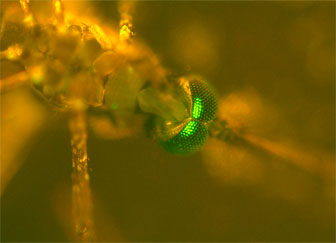As wealthy get dengue fever, drug companies more likely to act
As wealthy get dengue fever, drug companies more likely to act
mongabay.com
August 15, 2007
As dengue fever increasingly becomes a disease of the affluent — especially in Asia — drug companies are showing more interest in developing treatment, reports a new article published in the journal Nature.
Dengue fever, a mosquito-transmitted disease that causes severe fever accompanied by joint and muscle pain, infects at least 50 million people a year in more than 100 countries, mostly in the tropics. But unlike many developing world diseases, dengue affects people at all levels of income.
“This is not a disease of the poverty-stricken, rural farmer,” Scott Halstead, scientific director of the Seoul-based Pediatric Dengue Vaccine Initiative (PDVI), told Nature. In some developing countries, “the richer you are, the more likely you are to get dengue.”
Nature reports that cities in southeast Asia are experiencing their worst dengue outbreak in a decade: Singapore has more than 5,000 infections while Indonesia has more than 100,000 (with 1,100 deaths). Dengue-carrying Aedes aegypti mosquitoes thrive in urban habitats, breeding in puddles, planters, and old cars tires.

A transgenic mosquito carrying a gene that confers resistance to the malaria parasite. The mosquito can be recognized as transgenic by the green fluorescence of the eye facets. |
However a growing middle class in the region, means that the infected increasingly have the ability to pay for treatment and, potentially, a vaccine for the so-called “bonecrusher disease.”
“It’s been enormously helpful to the field to see the potential market value of a dengue vaccine increase, and that has everything to do with rising
incomes in Latin America and Asia,” Bruce Innis, who heads vaccine development at GlaxoSmithKline (GSK), told Nature.
“The reason why GSK and Sanofi-Aventis are in this business is shrewd business judgement,” Nature quoted Halstead as saying.
PDVI director Harold Margolis says that a two-tiered market – public and private – is likely to emerge for the treatment of dengue, one for governments to use for the general public and another for travelers, the military and NGOs. PDVI is using a $55 million grant from the Bill and Melinda Gates Foundation to support development and testing of dengue vaccines.
Still, some researchers are skeptical that a vaccine will be developed any time soon..
“We’ve been waiting for a vaccine for a very long time,” Michael Nathan, dengue specialist at the WHO, told Nature. Particularly challenging is the need to develop a vaccine that works against at least four strains of dengue.







